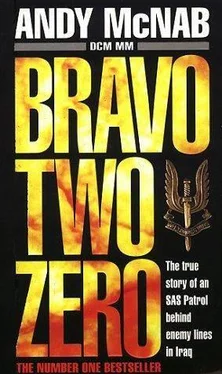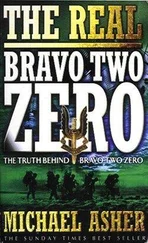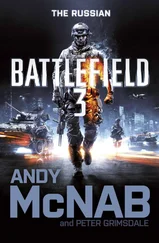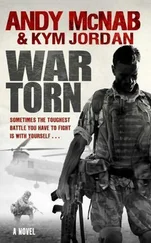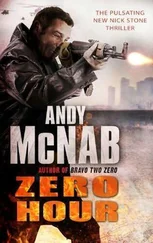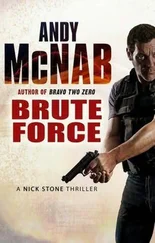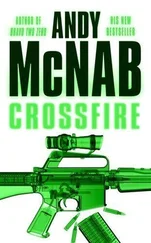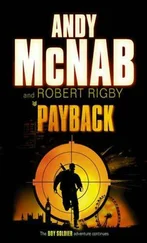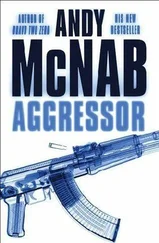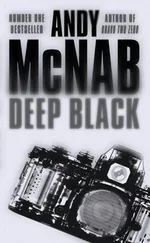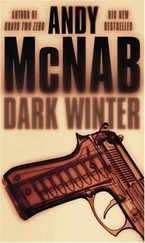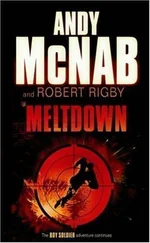We pressed on towards Syria along the higher ground. By now we were at an altitude of over 1,000 feet, and it was colder than we could have imagined. The area looked like a NASA photograph of the moon, bleak and white, with random outcrops of higher ground. The hills funneled the wind towards us. We had to lean hard into it as we pushed into the gaps. We came to an area of scorched earth that was broken by craters and tank berms. It could have been an old launch site or the scene of a battle. The craters were full of water, snow, and ice, and reminded me of photographs of the Somme.
We had agreed that if anybody started to suffer from exposure, they were to say so at once and not play the hard man. At anybody’s request we would come down as fast as we could or find some area out of the wind. If we had to stay up there for the following day, we’d die. We were still soaked and frozen. In the early hours, Mark started going down. “We’ve got to get off the high ground because I’m suffering severely here.”
We stopped and I tried to think. It wasn’t easy to concentrate. Icy rain was now driving horizontally into my face. My mind was a blur of wet and cold, and it was hard to shut out the pain for long enough to think. Did we go forward west and try to get over the high ground and hopefully find some cover? Or did we go back to where we knew we would be out of the wind? I decided we must come off the high ground for Mark to have any chance of survival.
The only place we knew for sure was out of the wind was back at the area of the riverbed near the meta led road. We came down more or less parallel with the road but about 600 feet away from any possible headlights. We couldn’t be arsed with navigating: there was not enough time-we needed to get back and recover, and we didn’t want to be out in the open at first light. It was a really bad two hours as we made our way down. We tabbed as fast as we could, and just before first light we found a position, a depression in the ground, a compromise between concealment and keeping out of the elements. We would try again tomorrow.
It was a dip no more than three feet deep. We got in and cuddled up. It was heartbreaking. We had traveled a horrendous number of kilometers just to make less than 6 miles northwest. But it was better to lose a night’s distance than to lose a man. We could see the meta led road about a mile to the north. The depression ran along the line of the wind, but we were out of the worst of it. We cuddled up and kept our eyes open.
At first light on the 26 thwe checked that we weren’t sitting on top of an enemy position. There was only one piece of ground that overlooked us, and as we were huddled up against one edge of the depression, it cut the chances of anybody seeing us.
The weather had changed. There wasn’t a cloud in the sky, and when the sun came out, it was quite comforting, psychologically, though it was still very cold. The wind was still biting and we were soaking wet.
I had a pair of small binoculars, an excellent bit of kit that I’d bought at a jeweler’s in Hereford. I looked north at the road that went up to a pumping station. There was a steady stream of vehicles, one every few minutes: oil convoys, water bowsers, civilian Land Cruisers with the husband driving and the wife all in her black kit sitting in the back. The vehicles normally came in groups of three or four. There were also lots of military convoys, consisting of armored vehicles and trucks.
Looking south I saw pylons a mile or so away that ran southeast-northwest, parallel to the road. Three or four vehicles also headed southeast along the line of the pylons as if following them as a navigational aid. We were sandwiched between the two.
We cuddled each other for warmth, trying to keep our eyes open but frequently dozing off and waking up with a start. We had survived the night, and now I just hoped that we could hold out until last light again.
We sorted our feet out. This is done in such a way that at any one time only one person has one boot off. We were well used to harsh tabbing in tough conditions, but last night’s efforts had taken the biscuit. We had tabbed for twelve hours, covering well over 30 miles, in the worst weather conditions any of us had seen for a very long time. Our feet had taken a fearsome pounding.
Dinger remembered that Chris had been wearing a pair of GoreTex go-fasters that had set him back a hundred quid. “If he’s still running around, I bet his feet are Okay in them Gucci boots,” he said, massaging his sore toes.
We got some cold scoff down us. We wouldn’t cook because the ground was too open. We had enough sachets of food to last a few days yet; water was the more pressing concern.
We rested and plotted. The big plan now was to take the high ground tonight, get over it, then hit the low ground, which according to the map was flat gravel plain that would take us into the border. In theory we could get over the border that night if we really went for it. All it would take was another twelve hours all out tabbing. On the positive side, we weren’t carrying much weight because all we had was our belt kit and our weapons. And we had the incentive, which was to get out of Iraq and into Syria. We had no idea what the border was going to be like; we’d just have to find out when we got there.
We did our map studies again to make sure we all knew where we were, where we were going, and what we were likely to see on the way-which wasn’t a lot because we were working with air maps. The alignment of pylons and so forth is approximate on these maps, but we did know that we’d have a major built up area about three hours north of us to our right. That seemed to be the only fixed obstacle.
We were all recovering quite well now. We whispered bad jokes to each other as the hours passed, trying to keep up morale. Everything was beginning to feel all right again. We were still cold, but we had it under control. At least it wasn’t snowing or raining any more. I was confident that we would be able to do it in one last big effort.
It was at 1530 that we heard it.
Ding ding, baa baaa.
We really don’t need this, I said to myself.
I had a quick scan but couldn’t see anything. We hugged the ground. There was no hollering or shouting as there was before in the last compromise, just the sound of chuntering and a solitary bell. It got closer and closer. I looked up, and there was the head goat with a bell around his neck. Wherever he went, it seemed, the other goats followed, because his entourage came and joined him one by one. Soon there were ten of them standing gawping over the edge of the dip. They looked at us and we looked at them. I lobbed a couple of small pebbles at the head boy to try and shoo him away.
His response was to come forward even more, and the rest of the goats followed. They put their heads down and started chewing, and there were five sighs of relief. They were a bit premature. A few seconds later the old goatherd turned up. He must have been 70 if he was a day. He had a big woolly dish-dash on, with a baggy old cardigan over the top. His head was swathed in a shamag. Over his shoulder was a tatty leather satchel. He had beads in his hands and muttered “Allah” as he pushed them through his fingers.
He looked at us and didn’t miss a beat. No surprise, no fright, no nothing.
I smiled at him, as one does.
Totally nonchalantly, as if it was an everyday occurrence to find five foreigners huddling in a dip in the ground in the middle of nowhere, he squatted down beside us and started gob bing off. I didn’t have a clue what he was saying.
We gave him the greeting, “As salaam alaikum.”
He replied, “Wa alaikum as salaam.”
We shook his hand. This was bizarre. He was so friendly. I wondered if he even knew there was a war on. Within seconds we were all best mates.
Читать дальше
